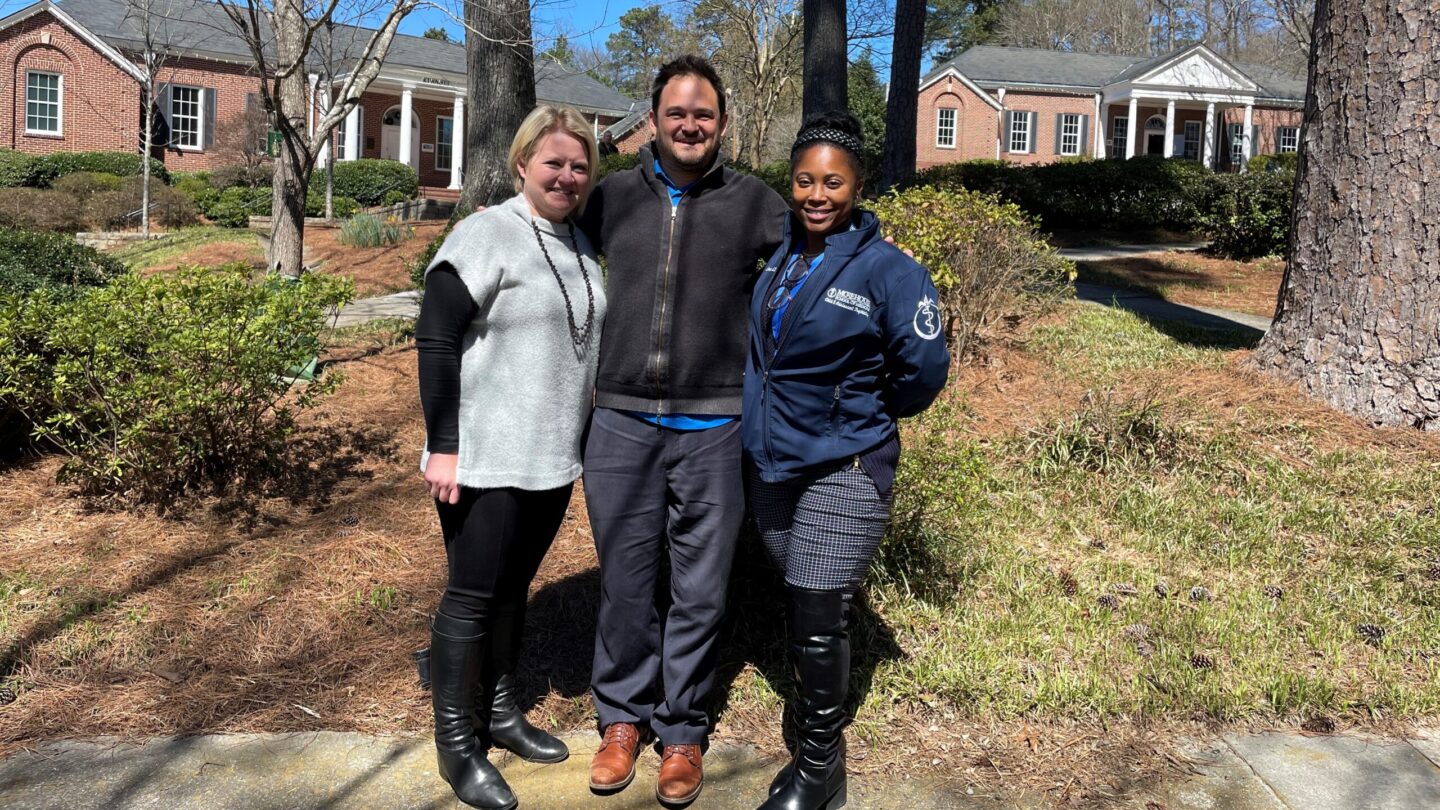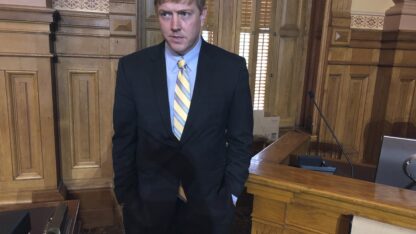For years, Hillside has provided residential and outpatient mental health treatment for kids and teens on their Atlanta campus, nestled in a forested neighborhood near Piedmont Park.
Since the pandemic, the young patients coming to Hillside have been arriving more ill. Many have tried to harm themselves. The symptoms are more intense and the waitlist for care is long.
“These kiddos are desperate,” says Dr. Adam Silberman, Hillside’s medical director. “They’ve been on God knows how many medication regimens and through different providers, and they’re sicker than ever before, and we try to put the pieces together as much as we can in the time we’re allotted, based on insurance, which doesn’t provide a lot.”
The need for mental health services is exploding in Georgia, but there are nowhere near enough providers. In fact, Georgia ranks last in the country for access to mental health care.
A bill to overhaul the mental health system in Georgia is wading through the legislature. Improving mental healthcare will require drawing more psychiatrists, therapists and nurses — and keeping them in the field.
Kimberly Young, a psychiatric nurse practitioner who manages Hillside’s nursing department and residential treatment, says reform is overdue.
At a picnic table on Hillside’s leafy campus, which includes colorful dorms and classrooms, a sunny cafeteria, pool and gardens, Young says COVID-19 made staffing challenges worse.
“The world outside of here is also very dark, and people are struggling and then we come here every day, and so it’s definitely taking a toll on our staff,” Young says. “It’s taken a toll on all of us, and our passion continues to bring us back. But our nursing staff, our residential staff, our therapists, every department has been hit with resignations.”
Even before the pandemic, Georgia faced a dire shortage of providers. One reason is mental health workers often don’t earn as much as other specialties do.
Those economics hinge on the lack of parity, the idea that insurance companies should cover behavioral health the same as other kinds of health. Georgia has never enforced that standard, despite being federal law for more than a decade.
Because insurance companies are less than generous when it comes to covering treatment for mental health and substance abuse, providers aren’t paid as much. Many medical, graduate and nursing students — anticipating hefty student loans — choose other specialties or fields.
Constant wrangling with insurance, Silberman says, is also frustrating. Many providers in Atlanta have stopped taking insurance at all and even fewer take Medicaid.
“When our care is dictated by insurance and somebody who has never met the patient they’re working with, that leads to a lot of burnout, and that’s not why most of us got into medicine,” Silberman says.
Lawmakers and advocates say enforcing parity through the new mental health bill will improve Georgians’ access to care.
Silberman says it will also help attract and retain more providers, but he says Georgia is decades behind — and the pipeline of providers won’t start flowing overnight.
Gwen Skinner knows the challenge intimately. She’s vice president for operations at Devereux Behavioral Health and chairs the workforce committee on the state’s Behavioral Health Reform and Innovation Commission.
“If you have no workforce, then you can’t address things like quality, availability,” Skinner says. “It is at the very foundation of the problem that we are addressing.”
That problem is especially acute in Georgia’s rural committees.
“One hundred fifty out of 159 counties are considered mental healthcare professional shortage areas,” she says. “Seventy-seven counties have no psychiatrist working full-time. Seventy-six counties don’t have a licensed psychologist.”
Skinner says one solution is training more peer support specialists who deploy their own experiences with mental illness or addiction to help others. There are also efforts underway to recognize counseling licenses across state lines.
The Georgia Rural Health Innovation Center and Mercer University launched another creative program, pairing graduate students pursuing careers in counseling and social work with students in rural school districts via telehealth.
Masters candidate Rebecca Johnson works with elementary and middle schoolers in Ben Hill County, where there are zero full-time mental health providers.
She often starts virtual sessions with younger kids by pulling up a “feelings chart” of emoji faces, to help kids talk about their days. Making sessions interactive breaks down some of the awkwardness of a virtual session.
“Some of these children that I’m working with are facing some really big deals,” Johnson says. “And the pandemic alone has been very difficult and very confusing for them. I can’t even imagine them navigating through these years without any type of mental health assistance.”
Johnson is in her forties, starting a second career. Years ago, she considered pursuing work in mental healthcare.
“All I wanted to do was change the world and I was ready to do whatever it took,” she says.
Johnson ended up in a corporate job instead, following her family’s advice to take a path with good pay and steady promotions.
That corporate job didn’t end up being fulfilling. Now, as she pursues her counseling credentials, Johnson hopes the mental health overhaul will change the calculus for others.
The bill outlines a forgivable loan program for students pursuing careers in mental health, something Johnson says her fellow grad students talk about frequently.
If the Georgia General Assembly makes that program a reality, Johnson says she would be able to pursue a doctorate — bringing her another step closer to helping fill Georgia’s cavernous mental health care gap.









